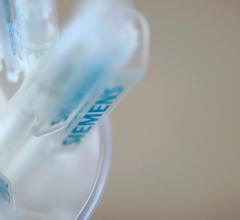July 11, 2014 — On July 3, the Centers for Medicare & Medicaid Services (CMS) issued a proposed rule that would update payment policies and payment rates for services furnished under the Medicare Physician Fee Schedule (PFS) on or after Jan. 1, 2015. Medicare primarily pays physicians and other practitioners for care management services as part of face-to-face visits. Last year, CMS finalized a separate payment, outside of a face-to-face visit, for managing the care of Medicare patients with two or more chronic conditions beginning in 2015. Through this year’s rule, CMS is proposing details relating to the implementation of the new policy, including payment rates. In addition, CMS is proposing a new process for establishing PFS payment rates that will be more transparent and allow for greater public input prior to payment rates being set. Under the new process, payment changes will go through notice and comment rulemaking before being adopted, beginning for 2016. CMS is also proposing to define screening colonoscopy to include anesthesia so that beneficiaries do not have to pay co-insurance on the anesthesia portion of a screening colonoscopy when furnished by an anesthesiologist.
The proposed rule also proposes changes to several of the quality reporting initiatives that are associated with PFS payments – the Physician Quality Reporting System (PQRS), Medicare Shared Savings Program and Medicare Electronic Health Record (EHR) Incentive Program, as well as changes to the Physician Compare tool on the Medicare.gov website. Finally, the rule continues the phased-in implementation of the physician value-based payment modifier (value modifier), created by the Affordable Care Act, that would affect payments to physicians and physician groups, as well as other eligible professionals, based on the quality and cost of care they furnish to beneficiaries enrolled in the traditional Medicare fee-for-service program.
The following discusses the proposed changes to payment policies and payment rates for services furnished under the PFS, as well as changes to the Open Payments program. Separate fact sheets, also issued July 3, discuss the proposed changes to the quality reporting programs, the Medicare EHR Incentive Program and other CMS programs, as well as the proposals for implementing the value modifier.
Primary Care and Complex Chronic Care Management
Medicare continues to emphasize primary care management services by beginning to make separate payment for chronic care management (CCM) services beginning in 2015. In last year’s final rule, CMS established policy to make separate payment for non-face-to-face CCM services for Medicare beneficiaries who have multiple, significant chronic conditions (two or more). CCM services include regular development and revision of a plan of care, communication with other treating health professionals and medication management.
This proposed rule addresses three aspects of CCM services. CMS proposes a payment rate of $41.92 for the code that can be billed no more frequently than once per month per qualified patient. It also proposes to allow greater flexibility in the supervision of clinical staff providing CCM services. Finally, CMS is not proposing to establish separate standards that practitioners and practices furnishing this service would have to meet, as indicated last year. Upon further review, CMS believes the scope of service requirements for CCM, most of which were finalized last year, would be sufficient for practitioners to deliver CCM. It is proposing one additional requirement – standards for EHRs – and seek comment on whether additional standards are needed. Payment for CCM is only one part of a multi-faceted CMS initiative to improve Medicare beneficiaries’ access to primary care. Models being tested through the Innovation Center will continue to explore other primary care innovations.
Misvalued Codes
Consistent with amendments to the Affordable Care Act, CMS has been engaged in a vigorous effort over the past several years to identify and review potentially misvalued codes, and to make adjustments where appropriate. In this year’s proposed rule, CMS is proposing to add about 80 codes to the list of potentially misvalued codes. It identified most by reviewing high-expenditure services by specialty that have not been recently reviewed. Several other proposed services were identified in a variety of ways, including through the public nomination process.
CMS is also ensuring consistency in its payment calculations by proposing to refine the way it accounts for the infrastructure costs associated with radiation therapy equipment. The proposal ensures the way CMS accounts for infrastructure costs associated with medical equipment is the same across the PFS. This change would result in a payment reduction to radiation therapy services to be redistributed to other PFS services. In addition, CMS is updating its practice expense inputs for X-ray services to reflect that X-rays are currently done digitally rather than with analog film.
Global Surgery
Under the misvalued code initiative, CMS is also proposing to transform all 10- and 90-day global codes to 0-day global codes beginning in CY 2017. The Office of the Inspector General has identified a number of surgical procedures that include more visits in the global period than are being furnished. In order to address the potential for misvaluation of surgical services, we are proposing to value include for these procedures all services provided on the day of surgery, and to pay separately for visits and services actually furnished after the day of the procedure beginning in CY 2017.
Enhanced Transparency in Ratesetting
A proposal to enhance transparency in PFS ratesetting would ensure that all revisions to payment inputs underpinning final payment rates are subjected to public comment prior to being used for payment. Since the beginning of the physician fee schedule in 1992, CMS adopted rates for all new and revised codes for the following calendar year in the final rule on an interim basis subject to public comment. This policy was necessary because CMS did not receive the codes in time to include in the PFS proposed rule. Until recently, the only services that were affected by this policy were services for which the codes for the coming year were new or revised. However, under the misvalued codes initiative, CMS began reviewing the rates for existing codes, which led to an increase in the volume of new and revised codes that resulted in an increase in payment rate changes. In recent years, CMS has become concerned about its practice of implementing changes in payment rates under the misvalued codes process prior to an opportunity for public comment. CMS has been working with the American Medical Association’s CPT Editorial Panel and Relative Value Update Committee to change the process for receiving information on new and revised codes under the misvalued code process in order to allow all misvalued code revisions to go through notice and comment rulemaking before being adopted. If finalized as proposed, the new process would ensure that by 2016, changes to the rates for particular services (except for those that are entirely new services never before valued under the PFS) are effective only after CMS has responded to public comment.
Telehealth Services
CMS is proposing to add the following services to the list of services that can be furnished to Medicare beneficiaries under the telehealth benefit: annual wellness visits, psychoanalysis, psychotherapy, and prolonged evaluation and management services.
Adjustments to Malpractice RVUs
As required by the Medicare law, CMS reviews and if necessary, adjusts malpractice (MP) RVUs no less often than every five years. For CY 2015, CMS conducted the third comprehensive review and update of the MP RVUs and proposed new malpractice RVUs for all services. The proposed resource-based MP RVUs are based on updated professional liability insurance premiums and largely parallels the methodology used in the CY 2010 update.
Revisions to Geographic Practice Cost Indices (GPCIs)
As required by the Medicare law, CMS adjusts payments under the PFS to reflect local differences in the cost of operating a medical practice. For CY 2015, we proposed to use territory-level wage data to calculate the work GPCI and employee wage component of the PE GPCI for the Virgin Islands. The CY 2015 GPCIs also reflect the application of the statutorily mandated 1.5 work GPCI floor in Alaska, and 1.0 work GPCI floor for all other physician fee schedule areas, and the 1.0 PE GPCI floor for frontier states (Montana, Nevada, North Dakota, South Dakota and Wyoming). However, given that the statutory 1.0 work GPCI floor is scheduled to expire under current law on March 31, 2015, the proposed GPCIs reflect the elimination of the 1.0 work GPCI floor from April 1, 2015 through Dec. 31, 2015.
Application of Beneficiary Cost Sharing to Anesthesia Related to Screening Colonoscopies
The Medicare law waives deductible and co-insurance applicable to screening colonoscopy. Increasingly, anesthesia separately provided by an anesthesia professional is becoming the prevalent practice in connection with screening colonoscopies, replacing the previous standard of moderate sedation provided intravenously by the endoscopist, which was bundled into the payment for the screening colonoscopy codes. When provided separately with a screening colonoscopy, Medicare did not waive deductible and coinsurance associated with the separately provided anesthesia. If adopted in the final rule, this revision would have the beneficial result of further reducing beneficiaries’ cost-sharing obligations under Part B. This is because the expanded definition of screening colonoscopy would bring anesthesia furnished in conjunction with the service within the scope of the provision that Medicare Part B pays 100 percent of the Medicare payment amount established under the PFS for certain colorectal cancer screening tests.
Off-Campus Provider-Based Departments
CMS proposes to begin collecting data on services furnished in off-campus provider-based departments beginning in 2015 by requiring hospitals and physicians to report a modifier for those services furnished in an off-campus provider-based department on both hospital and physician claims.
Open Payments
The Open Payments program establishes a system for annually reporting and increasing public awareness of financial relationships between drug and device manufacturers and certain health care providers.
Open Payments is a national disclosure program that promotes transparency by publishing information about these financial relationships on a publicly accessible website developed by CMS. The Open Payments program requires applicable manufacturers of covered drugs, devices, biologicals and medical supplies to report payments or other transfers of value they make to physicians and teaching hospitals to CMS. It also requires applicable manufacturers and applicable group purchasing organizations (GPOs) to report certain ownership or investment interests held by physicians or their immediate family members, and payments or other transfers of value made to physician owners or investors if they held ownership or an investment interest at any point during the reporting year.
In response to questions and experience administering the program, CMS is proposing four changes in this rule. First, it is proposing to delete the definition of “covered device” as it is duplicative of the definition of “covered drug, device, biological or medical supply” which is already defined in regulation. Second, it is proposing to delete the Continuing Education Exclusion in its entirety. Eliminating the exemption for payments to speakers at certain accredited or certifying continuing medical education events will create a more consistent reporting requirement, and will also be more consistent for consumers who will ultimately have access to the reported data. Third, CMS is proposing to require the reporting of the marketed name of the related covered and non-covered drugs, devices, biologicals or medical supplies, unless the payment or other transfer of value is not related to a particular covered or non-covered drug, device, biological or medical supply. Last, CMS is proposing to require applicable manufacturers to report stocks, stock options or any other ownership interest as distinct categories. This will enable us to collect more specific data regarding the forms of payment made by applicable manufacturers.
The proposed rule will be published in the Federal Register on July 11, 2014. CMS will accept comments on the proposed rule until Sept. 2, 2014.
To view additional fact sheets about the value-based payment modifier (value modifier) and quality provisions in the PFS proposed rule, visit http://cms.gov/Newsroom/MediaReleaseDatabase/Fact-sheets/2014-Fact-sheets.html.
For more information about Open Payments, visit http://go.cms.gov/openpayments.
For more information: www.federalregister.gov/public-inspection


 November 14, 2025
November 14, 2025 









